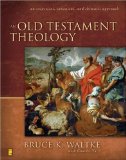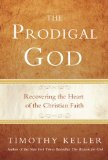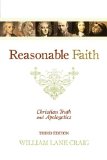For those who don’t have the time or energy to work through a D A Carson book, you’llbe happy to know that there are  a plethora of articles and essays at the TGC website. If you’re looking for a place to start, I’d be happy to recommend his essay “Worship under the Word” (opens a pdf file) from the book, Worship by the Book, published in 2002. As he notes at the beginning of this essay, writing about worship, especially about the theology of worship, is a trying task, largely because there are as many opinions about worship as there are churches, many of which reveal personal preference more than a theological stance.
a plethora of articles and essays at the TGC website. If you’re looking for a place to start, I’d be happy to recommend his essay “Worship under the Word” (opens a pdf file) from the book, Worship by the Book, published in 2002. As he notes at the beginning of this essay, writing about worship, especially about the theology of worship, is a trying task, largely because there are as many opinions about worship as there are churches, many of which reveal personal preference more than a theological stance.
Even using the term “worship” to speak of music and singing is misleading, since the Bible itself doesn’t restrict that term in such a manner. Carson weeds through biblical texts and and tries to make sense of it all. It’s helpful to remember that just because the Bible uses the word “worship,” it doesn’t mean it’s using it in a way that we would. So, for example, when Jesus is about to give the Great Commission, it says the disciples “worshipped him” (Matthew 28:17). What does this mean? Did the fall to their knees or fall prostrate, as the verb proskuneo literally means? Did they shout in praise? Did Peter pick up the guitar and lead the disciples in a round of Lord I Lift Your Name on High?
Carson even gives his own definition of “worship” in the most Carsonesque fashion:
Worship is the proper response of all moral, sentient beings to God, ascribing all honor and worth to their Creator-God precisely because he is worthy, delightfully so. This side of the Fall, human worship of God properly responds to the redemptive provisions that God has graciously made. While all true worship is God-centered, Christian worship is no less Christ-centered. Empowered by the Spirit and in line with the stipulations of the new covenant, it manifests itself in all our living, finding its impulse in the gospel, which restores our relationship with our Redeemer-God and therefore also with our fellow image-bearers, our co-worshipers. Such worship therefore manifests itself both in adoration and in action, both in the individual believer and in corporate worship, which is worship offered in the context of the body of believers, who strive to align all the forms of their devout ascription of all worth to God with the panoply of new covenant mandates and examples that bring to fulfillment the glories of antecedent revelation and anticipate the consummation.
Have you ever seen a definition so ready-made for a power point slide?
Don’t let the long definition (which Carson even calls “too long and too complex”) throw you off. He does a great job of breaking it down and making it manageable. Along the way you’ll learn a ton about what the Bible says regarding worship, and even pick up some insightful comments on contemporary practice. In a nutshell, it’s the kind of essay every pastor and worship leader should read, as well as anyone interested in the theology and practice of worship.
 I recently just finished reading D A Carson’s book,
I recently just finished reading D A Carson’s book, 









